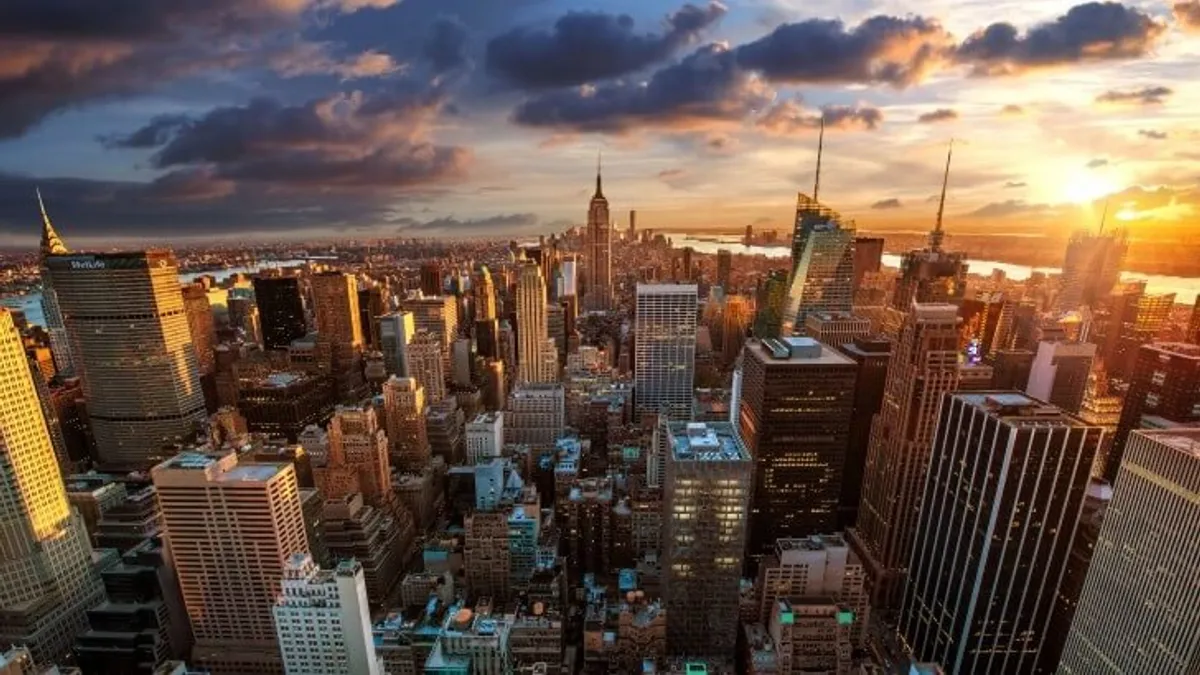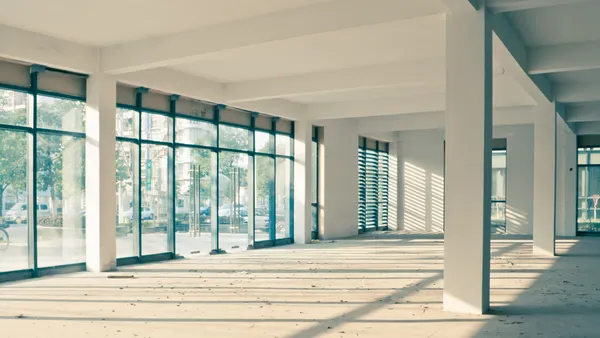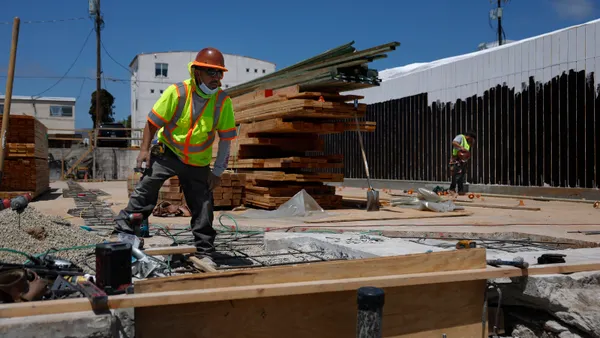Dive Brief:
- The International Code Council (ICC) — an organization that manages building codes for much of the U.S. — this month removed the rights of local governments to vote on future energy efficiency building regulations, a move that could have major implications for cities as they seek to reduce their greenhouse gas (GHG) emissions within building sectors, according to industry experts.
- The ICC’s new system gives the construction and gas industries more control over energy codes by replacing localities' voting power with a new "standards process" that will still factor local-level input, but allows industry groups to wield more influence, the Huffington Post reports.
- States are likely to adopt the ICC’s most recent standards for building codes, according to Kelly Shultz, a program lead for sustainable cities at Bloomberg Philanthropies. And that can constrain cities' ability to address energy efficiency in their building sectors, as most cities cannot be more ambitious than their state's building codes, she said.
Dive Insight:
Over 200 organizations and individuals submitted comments to the ICC surrounding its decision to end government voting on the International Energy Conservation Code (IECC). And 75% of those comments were opposed to the elimination, according to the Institute for Market Transformation (IMT), with the majority of those submitted by local government representatives.
The U.S. Conference of Mayors (USCM) and the National League of Cities (NLC) wrote to the ICC in a joint letter, discouraging the group from removing government voting rights.
"Local government officials (e.g., mayors, councilmembers, city managers and other local staff) view the 15 I-Codes, particularly the IECC, as critical to achieving both local and national clean energy goals," NLC CEO and Executive Director Clarence E. Anthony and USCM counterpart Tom Cochran wrote.
"The benefits of improving building efficiency extend beyond energy savings that quickly recoup incremental cost of efficiency measures and improve long-term building affordability for owners and tenants, to improved indoor air quality, low-income assistance, increased property values and power grid stability," the letter reads.
Representatives from the federal government also expressed their concerns over the decision.
The U.S. Department of Energy and the House Energy and Commerce Committee wrote letters questioning the decision, according to IMT, expressing "concerns over ICC's relationship with the home builder industry."
However, ICC Vice President of Innovation Ryan Colker said in an email that local governments will continue to have "significant opportunities to engage in the new development process."
"One third of the committee members will be government regulators along with the committee chair. Additionally, as in the prior process, local officials and any interested party will have the opportunity to submit code change proposals," Colker said. "Once the committees decide the status of submitted changes, they will be compiled into a public review draft where local government representatives and others will be able to provide comments."
The new development process for the IECC also includes an updated "scope and intent," according to Colker, which states that the 2024 and future code editions will include requirements to support reducing GHG emissions.
"The Code Council is committed to providing the resources communities need to achieve their climate goals," Colker wrote.
These developments come as a number of cities have set ambitious climate goals for their building sectors, which are typically responsible for much of a city’s GHG emissions. New York’s building sector is responsible for over 70% of its GHG emissions, for instance, while St. Louis and Indianapolis’ building sectors are responsible for about 80% and 66% respectively, according to Shultz.
"Our mayors cannot hit the climate targets that they've set without dramatically decarbonizing their building, and working on energy efficiency," she said. "These codes are critically important."
Economic concerns were one of the key issues that industry groups posed to the ICC surrounding the decision, according to Shultz. But there’s enough proof points and evidence to show that tackling climate change is good for local economies, she said.
A 2019 Sierra Club report found electrifying California’s new and existing buildings by 2045 would create 100,000 full-time equivalent jobs, "even after accounting for losses in the fossil fuel industry," the report states. And the City of St. Louis, which recently implemented a new Building Energy Performance Standard, anticipated it could cut emissions by at least 11% and save over $65 million in energy costs annually through its new standards.
The ICC's decision allows the builders to "become the arbiters of model standards for houses and offices. This would be akin to letting the coal industry adopt its own emission standards," Former New York Mayor Michael Bloomberg and former Chairman of the Sierra Club Carl Pope wrote in an op-ed.











